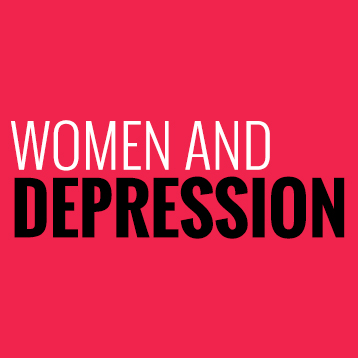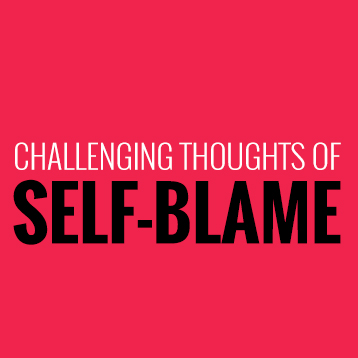It is normal for all of us to go through a period of sadness at some point in our lives, especially after experiencing a negative event such as losing a loved one, going through a serious illness, or losing a job. However, if you are feeling sad or cannot find pleasure in usual activities almost on a daily basis, for a long period of time (at least two weeks), and these feelings of sadness are not caused by normal bereavement (for example, if someone you loved recently passed away), then you might be suffering from major depressive disorder, which people commonly refer to as depression.
You could be going through depression if along with experiencing sad mood and a loss of interest and pleasure for a period of at least two weeks, you are also experiencing at least four of the following symptoms:
- Sleeping too much or too little
- You find it hard to sit still or you feel like doing nothing at all. In the first case, you may find yourself pacing back and forth, tapping your leg or fingers, biting your fingernails or lips. In the second case, you might find that your movements, speech and emotional reactions are slowed down. For example, you may feel that doing regular things such as showering, cooking, washing the dishes, making decisions about everyday tasks and even getting out of bed or shopping for groceries is too difficult.
- Poor appetite and weight loss, or increased appetite and weight gain
- Loss of energy
- Feelings of worthlessness
- Difficulty concentrating, thinking, or making decisions
- Recurrent thoughts of death or suicide

Depression has been found to occur almost twice as often in women as in men. There are several reasons as to why women are more vulnerable to suffer from depression [1]:
Adult women are more likely than men to deal with situations that cause stress such as having to take care of others or living on very little money. Indeed, many abusers control their victims’ finances, either by forbidding them to work so that they will depend on them for an allowance -which they will withhold if the victim does not follow their ‘rules’-, by checking how much money they spend, or by harassing them at work so that they will be fired. Being a victim of an abusive relationship is a very stressful experience so, not surprisingly, it can lead you to feel depressed.
The roles and standards that are set by today’s society can lead girls to be more self-critical about their appearance than boys [2].
In order to follow what society dictates and expects of them, women may be prevented from engaging in activities that they might find rewarding because these activities are not viewed as “feminine” (for example, ‘I really want to study and become a doctor, but I should not because that is not a woman’s job’). It goes without saying that your life belongs to you and you should be the one to decide how you want to live it. But unfortunately, abusers want to control every aspect of their victims’ lives. As a result, your abuser may forbid you to do or pursue activities that interest you and that you find enjoyable. These restrictions can lead to depression.
Women are more likely to seek approval and closeness within their relationships with other people (including friends, family, and co-workers) which can lead them to be more sensitive when stressful situations occur within their relationships with others (for example, becoming more upset than normal when you have an argument with a friend) [3]. While a healthy relationship between a husband and wife is based on love and respect for one another, abusive relationships are all about the power and control the abuser exerts over his victim. So, abusive relationships constantly create stressful situations for the victims. And since women can be more sensitive to stressful events within their interpersonal relationships, having an abusive husband can lead them to become depressed.
While men usually try to distract themselves when feeling sad by engaging in various activities such as playing sports, women tend to dwell on their sad mood, thinking over and over about the reasons why unhappy events have happened, which can lead these feelings of sadness to last for a longer period of time [4]. If you are a victim of abuse, you may dwell on wondering why this is happening to you. However, dwelling on negative events can lead you to feel sad for longer.
You may be wondering why some people become depressed while others don’t, even though they seem to be going through similar situations. In reality, a lot of factors have been associated with the development of depressive symptoms: not only has depression been linked to people’s biology and genetics (for example some people who suffer from depression also have a close relative that has gone through depression), but also people’s personality, environment, and way of thinking seem to play an important role in causing a person to experience feelings of depression.
For instance, people who are generally anxious, insecure, and tend to worry more about things, are more likely to experience depression [5]. In terms of environment, people suffering from depression may feel as though they don’t have enough social support because they don’t have a large social network, or because they feel that the networks they have don’t give them a lot of support [6]. Not having enough support from your environment can decrease your ability to deal with negative life events and therefore make you more vulnerable to depression. In fact, it has been found that women, who don’t have a supportive environment to help them cope with a stressful life event, are ten times more likely to develop depression than those who have social support [7]. In many abusive relationships, the abuser will try to isolate his victim from her social network by forbidding her from keeping in touch with her friends, to have a job, to leave the house, or by being present whenever she is meeting with her family so that he will control what she says to them. As a result, this isolation makes it even harder for victims of abuse to deal with depression. Additionally, if you have gone through depression in the past and are living with family members, including in-laws, who make snide comments towards you, you are more than twice as likely to become depressed again in the future than if you were living with people who are accepting of you [8].
Our way of thinking can also influence whether we will develop depressive symptoms or not. It has been proposed that depression is linked to a combination of negative views of yourself (for example, ‘I am worthless’), your environment (for example, ‘there is no way I can deal with my abusive husband’), and your future (for example, ‘things will always be this bad’). These negative views interact with negative, deep-set beliefs (for example, unconsciously expecting that people in general will intentionally hurt, abuse, or take advantage of you) which can cause a tendency to explain what happens around you in a negative way (for example, paying more attention to negative than positive life events)[9] and can lead you to become depressed [10].
It has also been suggested that depression can be triggered by the feeling of hopelessness. Feeling hopeless can be caused by low self-esteem. Not surprisingly, abusive relationships can lower your self-esteem as abusers will usually degrade you through their words or actions and then blame you for their behaviour. In addition to this, when a negative event happens (for instance, your husband becomes violent towards you) you may wrongly attribute it to personal causes (for example, ‘I am worthless’), permanent causes (for example, ‘I am always wrong’), and may think that it influences all areas of your life (for example, ‘no one will ever be kind to me’). Blaming yourself in this way can lead you to feel hopeless and make you believe that things will never change for the better. This in turn can make you feel depressed [11].
Unfortunately, it has been found that negative events have a greater influence than positive ones; that we process negative information more than positive information, and that negative information contributes more to our final impression [12]. In fact, negative events are on average five times as powerful as positive ones [13]. This means that if someone does something bad to you, he will then need to do five good things to you in order for you to go back to your original emotional state. In addition to this, when you are in a bad mood, you are more likely to remember negative past events than positive ones [14]. This in turn can make you feel even more depressed by creating a vicious cycle: you are sad therefore you remember bad memories, which reinforces your feelings of sadness.

Dwelling on negative events and constantly wondering why they occurred can lead you to feel depressed. For instance, you might find yourself trying to rationalise your abuser’s behaviour, making excuses for it, or even blame yourself for having caused it. Know that nobody deserves to be abused and that nothing you said or did is the reason of why you are being abused. In fact, no matter how ‘perfectly’ you may try to behave by consciously planning what you will say or do, your abuser will still ‘find reasons’ to continue his abusive behaviour. And that is because abusive relationships have nothing to do with how you behave; they are about the power and control your abuser has over you. Abusers will use verbal, emotional, or physical abuse in order to get what they want and in order to have their needs met, not because you have done something wrong.
Of course, your abuser will try to rationalise his behaviour by blaming his short-temper or your actions. This, however, is false. If he was unable to control his temper, he wouldn’t make sure to abuse you only when people who love and would stand up for you are not around, he would not pretend to be kind towards you when you are in front of the people who care about you so that they will not believe you if you tell them that he is abusing you, and if he is physically violent towards you, he wouldn’t make sure to only hit you in places where your bruises will not be visible or in places where they can be explained by other means (for instance, ‘I fell down the stairs’). All these show that abusers are in control of their temper.
Moreover, your actions are not to be blamed either as abusers will act abusively regardless of your behaviour and will at times plan their actions beforehand and even set you up so that they can justify abusing you. In fact, it has been proposed that abuse follows a cycle of three stages [15]:
-
During the first phase the tension is building. In this first phase you may experience verbal and even physical abuse but not to an extreme form as in Phase two. You may try your best to calm your abuser down with your behaviour, and it may work for a while, which can make you think that if you are careful enough, you may prevent an abusive episode. Still, this is not the case as once the tension builds up, Phase two will eventually occur. In fact, your abuser may already fantasise about becoming abusive towards you during this phase.
-
Phase two is when the abuser takes control and when a severe abusive incident takes place. The abuser may set you up by creating a situation that will then ‘justify’ his abuse. After being abusive towards you, the abuser has released all of the tension that was building up, which strengthens in him the belief that being abusive towards you gets rid of the tension.
-
The third and final phase is known as ‘the honeymoon period’. During this phase the abuser apologises and expresses his love for you. He acts as if he is feeling guilty but in reality he is not regretting his abusive behaviour: he is just afraid of the consequences of his abusive behaviour. For instance, he could be scared that he will lose you or that he will get in trouble if his behaviour is found out by others. During this stage, you may get false hope that your abuser will change for the best, and that if you try hard enough to please him, he will no longer be abusive. Unfortunately, this is not the case and unless there is intervention, the phases will restart and become worse over time. Your abuser may act as if he loves you during this ‘honeymoon period’ but if he truly loved you, he would never treat you badly in the first place.
This cycle of tension, abuse/violence, and seemingly loving period, creates a constant feeling of uncertainty which can be very stressful. Unfortunately, uncertainty has been found to lead to great feelings of attachment and dependence [16] which could explain why many victims of abuse feel so dependent on their abusers, especially when financial abuse is also involved and the victim has no choice but to depend on her abuser for financial security.
If you suspect that you or someone you know is suffering from depression, do not lose hope as there are ways to treat depression. To learn more, please click here.
REFERENCES
[1] Nolen-Hoeksema, S. (2001). Gender differences in depression. Current Directions in Psychological Science, 10, 173-176.
[2] Hankin, B.L. & Abramson, L.Y. (2001). Development of gender differences in adolescent depression: An elaborated cognitive vulnerability-transactional stress theory. Psychological Bulletin, 127, 773-796.
[3] Hankin, B.L., Mermelstein, R., & Roesch, L. (2007). Sex differences in adolescent depression: Stress exposure and reactivity models. Child Development, 78, 279-295.
[4] Nolen-Hoeksema, S., Morrow, J., & Fredrickson, B. (1993). Response styles and the duration of episodes of depressed mood. Journal of Abnormal Psychology, 102, 20-28.
[5] Jorm, A.F., Christensen, H., Henderson, A.S., Jacomb, P.A., Korten, A.E., & Rodgers, B. (2000). Predicting anxiety and depression from personality: Is there a synergistic effect of neuroticism and extraversion? Journal of Abnormal Psychology, 109,145-149.
[6] Keltner, D., & Kring, A.M. (1998). Emotion, social function, and psychopathology. Review of General Psychology, 2, 320-342.
[7] Brown, G.W., & Andrews, B. (1986). Social support and depression. In R. Trumbull & M.H. Appley (Eds.), Dynamics of stress: Physiological, psychological, and social perspectives (pp. 257-282). New York: Plenum.
[8] Buttzlaff, R.L., & Hooley, J.M. (1998). Expressed emotion and psychiatric relapse: a meta-analysis. Archives of General Psychiatry, 55, 547-553.
[9] Kendall, P.C., & Ingram, R.E. (1989). Cognitive-behavioral perspectives: Theory and research on depression and anxiety. In D. Watson & P.C. Kendall (Eds.), Personality, psychopathology, and psychotherapy (pp. 27-53). San Diego, CA: Academic Press.
[10] Beck, A.T. (1967). Depression: Clinical, experimental and theoretical aspects. New York: Harper & Row.
[11] Abramson, L.Y., Metalsky, G.I., & Alloy, L.B. (1989). Hopelessness depression: A theory-based subtype of depression. Psychological Review, 96, 358-372.
[12] Baumeister, R.F., Bratslavsky, E., Finkenauer, C., &Vohs, K.D. (2001). Bad Is Stronger Than Good. Review of General Psychology, 5(4), 323-370.
[13] Gottman, J. (1994). Why marriages succeed or fail. New York: Simon & Schuster.
[14] Lewis, P. & Critchley, H. (2003). Mood-dependent memory. Trends in Cognitive Sciences, 7(10), 431-433.
[15] Walker, L. E. (1979). The battered woman. New York: Harper & Row.
[16] Fisher, A.E. (1955). The effects of differential early treatment on the social and exploratory behavior of puppies. (Unpublished doctoral dissertation). Pennsylvania State University.

